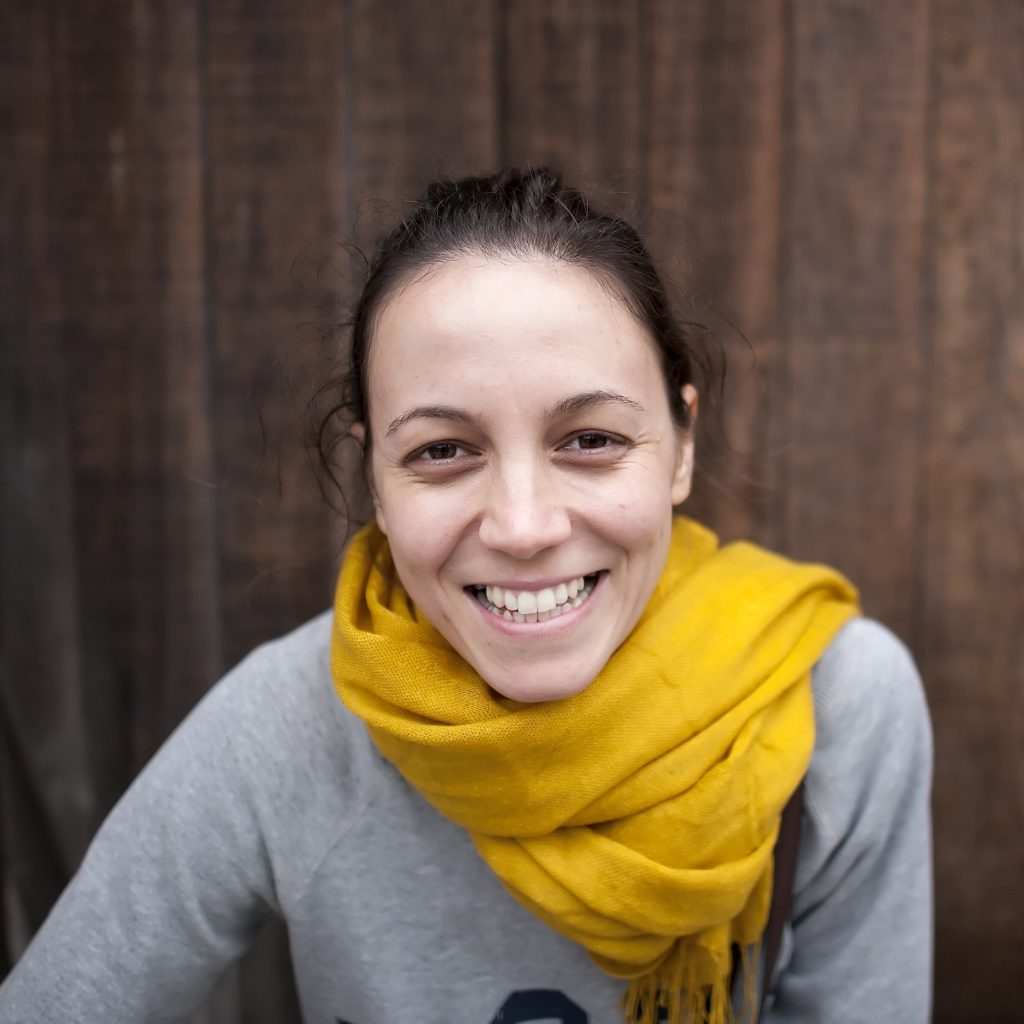Allen School professor Maya Cakmak, who directs the Human-Centered Robotics Lab, was recently named a 2021 Trailblazer by the University of Washington’s Disabilities, Internetworking, and Technology Center (DO-IT). The Trailblazer awards honor members of the DO-IT community who forge new pathways to increase the potential for people with disabilities to succeed in college, careers and life. Cakmak was honored for her continued work with DO-IT’s AccessEngineering, AccessComputing and Summer Study Program. The initiatives introduce students with disabilities to engineering and computer science and make these disciplines more accessible.
Cakmak’s research focuses on creating robots that can be programmed and controlled by a diverse group of users with unique needs and preferences to do useful tasks. By taking a human-centered approach to build robots that assist people in everyday tasks with state-of-the-art robotic functionalities accessible to users with no technical background, Cakmak’s goal is to make personal robotic assistants in the home a reality to improve the quality of people’s lives, including giving independence to people with motor limitations and enabling older adults to age in place.
“I was introduced to accessibility research by emeritus professor Richard Ladner when I first joined the faculty in 2013,” said Cakmak. “Richard made me realize the potential role that robots could play in addressing inequities that people with mobility and dexterity limitations face in accessing the physical world.”
In 2014, Cakmak was introduced to DO-IT director Sheryl Burghstahler and started working with her as a co-PIs on the AccessEngineering project. Ladner encouraged Cakmak to propose a DO-IT robot programming workshop. Both of those experiences taught her a lot about working with people with disabilities and shaped her research interests for years to come. Her continued commitment to DO-IT programs has given Cakmak the opportunity to serve a diverse student body while integrating relevant disability-related and universal design content into engineering courses. In the robot programming workshop, she taught high school students with disabilities to program different types of robots. For instance, in one workshop students with little robotic experience programmed interactive social robots to help people deal with stress and regulate emotions. In another, students collaborated to program a mobile manipulator robot to be a grocery store attendant.
“We generally think in terms of the 99 percent of humans, and human-centered design targets 100 percent of them,” said Dillen, a student in the workshop.
Cakmak also participated in the AccessComputing OurCS workshop series, which involved university women with disabilities in a two-day program where they created a robot that supports mental health. By brainstorming and bodystorming, the group explored user and robotic interaction to reach their goal. The students identified a need to journal to improve mental health and built journaling robots with friendly faces that were tuned into listening to a person and asking them questions based on the techniques and tools the students found to be the most important to relieve stress.
“I continue to work with DO-IT, as well as other great initiatives on campus like the Taskar Center and CREATE, because they are the subject domain experts and bring so much to the table. I continue to learn from them in every project,” said Cakmak. “Like our rockstar Allen School grad student and 2020 Trailblazer Award recipient Ather Sharif recently wrote, we ought to include people with disabilities in every part of accessibility research.”
Cakmak, who holds the Robert E. Dinning Professorship, received the Robotics: Science and Systems Early Career Spotlight Award, has been named a Sloan Research Fellow and had her work featured in Wired magazine.
View Cakmak’s acceptance speech here, and learn more about the 2021 DO-IT Trailblazers here.
Congratulations, Maya!


